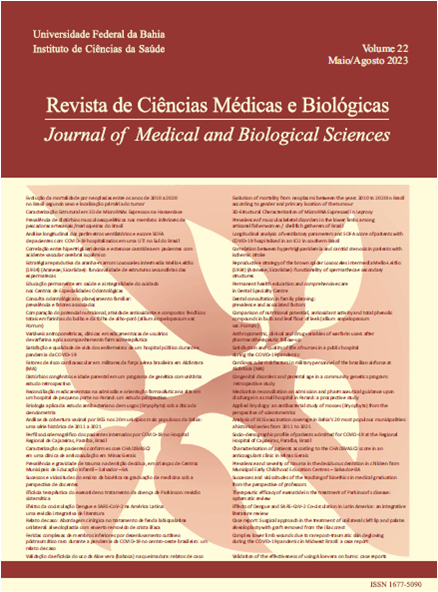Successes and vicissitudes of bioethics teaching in medical graduation from the perspective of professors
DOI:
https://doi.org/10.9771/cmbio.v22i2.50007Keywords:
Medical education. Code of Medical Ethics Higher Education. Deliberation. Moral development.Abstract
Introduction: The teaching of bioethics in medical graduation is part of the perspective of a society that demands the retention of human values. Objective: to characterize the perception of medicine professors from private and public Higher Education Institutions in Londrina, Paraná, regarding the successes and vicissitudes of why, what, when and how to teach bioethics in the training of physicians. Method: quantitative and transversal research whose instrument aimed to test the hypotheses of conditioning the time of teaching activity; Public or private HEIs and the practice of medicine in public and private institutions. Results: The research involved 105 professors, most of whom had some training or qualification in bioethics, which evidenced the concreteness of the understanding of the relevance of the insertion of bioethics in medical education and the professor's role in the moral formation of the student. While what, when and how to teach, however, constitute challenges for teaching. Although 59% of the participants recognized the context of transversality, the imprecision of confluences and divergences with medical ethics, the best period of the course to work on themes and pedagogical methodologies demand improvement and training, which were associated with the attributions of the institutions. Conclusion: the teaching process of Bioethics must be improved, aiming to develop the ethical and moral dimension so necessary for medical professionals to meet the demands of contemporary society.
Downloads
Downloads
Published
How to Cite
Issue
Section
License
Copyright (c) 2023 Journal of Medical and Biological Sciences

This work is licensed under a Creative Commons Attribution 4.0 International License.
The Journal of Medical and Biological Sciences reserves all copyrights of published works, including translations, allowing, however, their subsequent reproduction as transcription, with proper citation of source, through the Creative Commons license. The periodical has free and free access.


